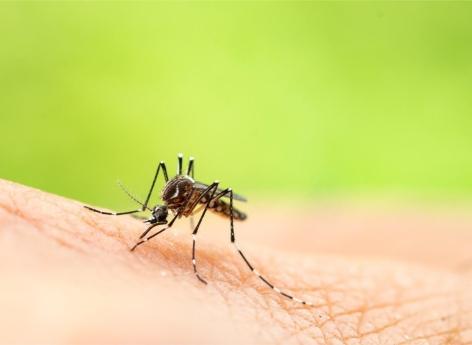THE ESSENTIAL
- The company Oxitec previously carried out a similar trial in Brazil.
- This is the first time an outdoor study like this has been conducted in the United States.
- A second trial is planned in California.
–
The beautiful days are coming back and with them, small insects are back to disturb our nights: mosquitoes! The bites are most often unpleasant, but in certain contexts they can become very dangerous, because these little beasts transmit many diseases, including malaria or the Zika virus. For several years, scientists have been trying to find solutions to make them harmless, and thus fight against these pathologies. In Florida, in the United States, teams from the biotechnology company Oxitec tested a hypothesis: genetically modifying mosquitoes to prevent them from being vectors of transmission. A year after the start of the experiment, they publish encouraging results in the journal Nature.
Five million genetically modified mosquitoes released in Florida
This trial started in November 2021, in Florida Keys, a group of tropical islands located south of Florida. Oxitec released nearly five million mosquitoes there Aedes aegypti genetically modified over a period of seven months. These insects can carry viruses such as chikungunya, dengue fever, Zika or yellow fever. It is only the females that bite, and can therefore contaminate humans. The researchers modified the males to carry a lethal gene for female offspring. The goal is to let the modified males mate with wild females, and for their female offspring to die before they can reproduce. Then the male offspring, carriers of the gene, pass it on again. “As each generation mates, more females die and the population of A. aegypti must decrease“, specifies the article of the magazine Nature.
Further studies are needed
Oxitec researchers collected more than 22,000 eggs from traps and brought them back to their lab to hatch under observation. They found that all females who inherited the gene died before reaching adulthood. The team noticed that the lethal gene persisted in the wild population for two to three months, or about three generations of mosquito descendants, and then disappeared. According to them, these results are positive, but they will have to be confirmed in a larger trial. “Larger tests are needed to determine if the insects can achieve the ultimate goal of suppressing a potentially virus-carrying wild mosquito population.”they say. However, such initiatives raise doubts. In 2019, scientists at Yale University were concerned about the appearance of hybrid mosquitoes, resulting from mating between genetically modified and wild mosquitoes. “This could lead to a more robust population.”the authors believed.
–

:quality(80)/cdn-kiosk-api.telegraaf.nl/9ed2646a-c3b8-11ec-ac62-0255c322e81b.jpg)
